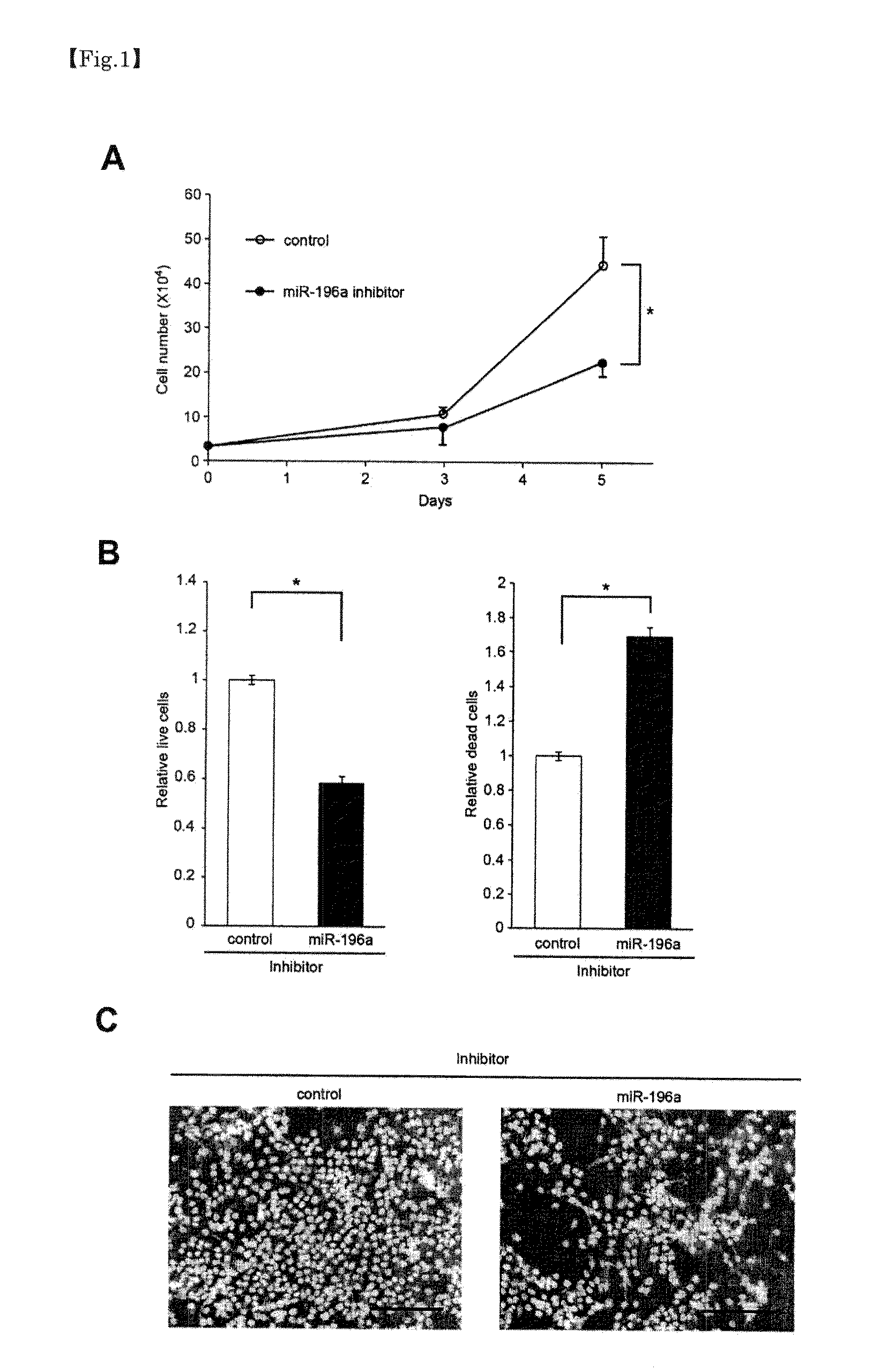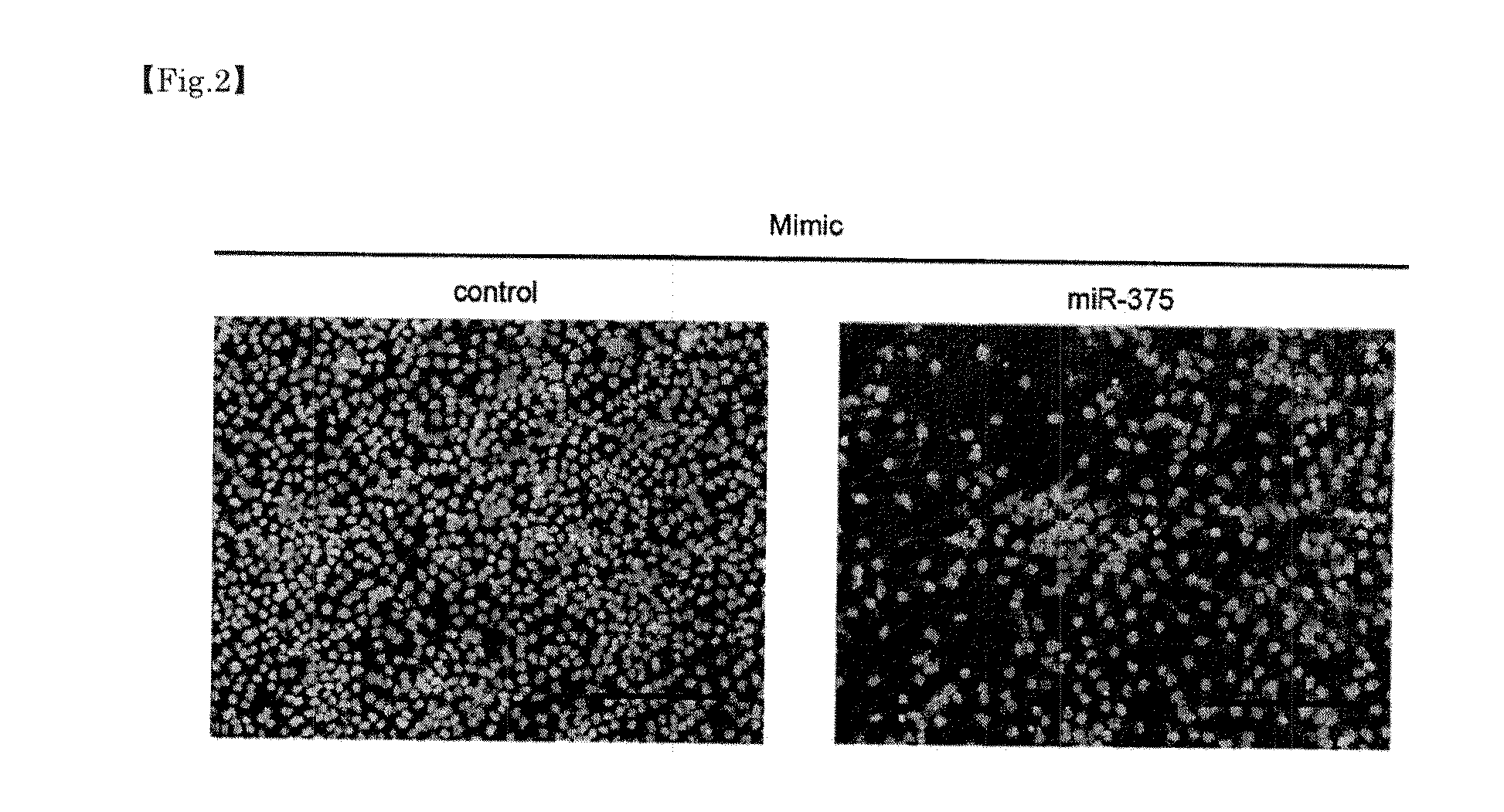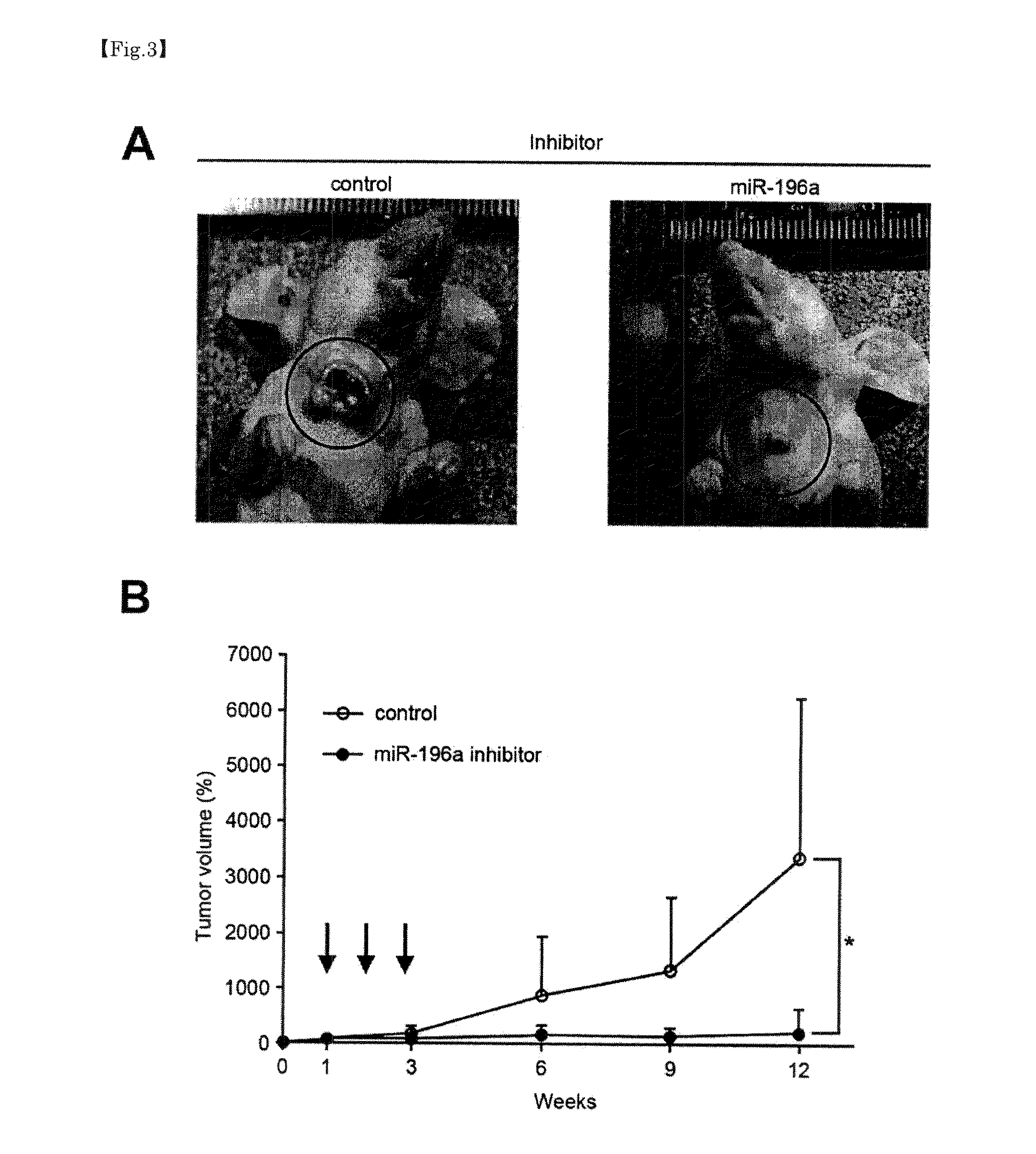Head-And-Neck Tumor Proliferation Inhibitor
a tumor and head and neck technology, applied in the field of cell biology and molecular biology, can solve the problems of affecting physical functions such as vocalization and swallowing, significant cosmetic damage to the head and neck and the face, and a long survival rate in advanced stages
- Summary
- Abstract
- Description
- Claims
- Application Information
AI Technical Summary
Benefits of technology
Problems solved by technology
Method used
Image
Examples
reference example 1
Analysis of Expression of microRNA in Head-and-Neck Squamous Epithelium Cancer Cell-Line
[0049]Prior to performing the growth assay in Example 1 described later, expression analysis on three types of microRNAs, i.e., miR-196a, miR-133b and miR-375, was performed in the head-and-neck squamous epithelium cancer cell-line to be used in the growth assay. The expression analysis was more specifically, performed in accordance with the following method.
[0050]First, as a head-and-neck squamous epithelium cancer (one of a head-and-neck tumor) cell-line, three types of cell-lines, i.e., Ca9-22 (oral cancer cell-line), SAS (tongue cancer cell-line) and JHU-011 (larynx cancer cell-line) were prepared. Then, in accordance with the protocol attached to the mirVana miRNA Isolation Kit (manufactured by Applied Biosystems), total RNA containing a microRNA was extracted from each of the cell-lines. Using each of the total RNAs thus extracted and TaqMan (registered trademark) and MicroRNA Assays (manuf...
example 1
Proliferation Assay of Head-and-Neck Squamous Epithelium Cancer Cell-Line
[0051]In order to check an effect of inhibiting growth of a head-and-neck tumor with respect to an inhibitory substance of a microRNA whose expression increases in a head-and-neck tumor and a promoting substance of a microRNA whose expression decreases in a head-and-neck tumor, proliferation assay for a head-and-neck squamous epithelium cancer cell-line was performed. Assay was, more specifically, performed in accordance with the following method.
[0052]First, for miR-196a, which exhibited an increasing tendency of expression in the head-and-neck squamous epithelium cancer cell-line, an RNA (INH 196a, manufactured by Dharmacon) consisting of a complementary sequence (antisense sequence of miR-196a) to miR-196a RNA sequence (SEQ ID NO:6) was used as an inhibitory substance of the microRNA. Furthermore, for miR-133b and miR-375, which exhibited a decreasing tendency of expression in the head-and-neck squamous epit...
example 2
In-Vivo Growth Assay Using Head-and-Neck Tumor Model Mouse
[0061]To check as to whether an inhibitory substance of a microRNA whose expression increases in a head-and-neck tumor has the growth inhibitory effect on a head-and-neck tumor even in vivo, in-vivo growth assay was performed. More specifically, the following method was employed.
[0062]To the cervical region of each of ten 6-week-old nude mice, xenogenic grafting of larynx cancer-derived human squamous epithelium cancer cells, JHU-011 (5×106 cells) was performed to prepare head-and-neck tumor model mice. At the 7th day after grafting, it was confirmed that a tumor was developed in the cervical region of the head-and-neck tumor model mice and then these head-and-neck tumor model mice were divided into two groups. To one of the groups, miR-196a inhibitor was administered and treated as INH 196a administration group (n=5) as mentioned above. To the other group, an inhibitor (negative control) was administered and treated as a neg...
PUM
| Property | Measurement | Unit |
|---|---|---|
| Inhibition | aaaaa | aaaaa |
Abstract
Description
Claims
Application Information
 Login to View More
Login to View More - R&D
- Intellectual Property
- Life Sciences
- Materials
- Tech Scout
- Unparalleled Data Quality
- Higher Quality Content
- 60% Fewer Hallucinations
Browse by: Latest US Patents, China's latest patents, Technical Efficacy Thesaurus, Application Domain, Technology Topic, Popular Technical Reports.
© 2025 PatSnap. All rights reserved.Legal|Privacy policy|Modern Slavery Act Transparency Statement|Sitemap|About US| Contact US: help@patsnap.com



